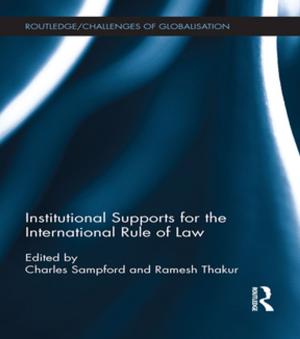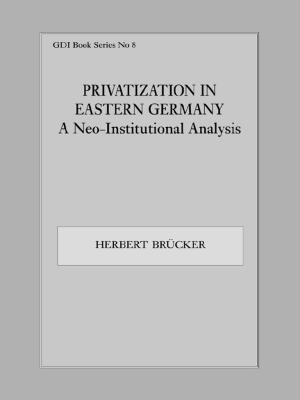Education in Modern Egypt (RLE Egypt)
Ideals and Realities
Nonfiction, Reference & Language, Reference, Social & Cultural Studies, Social Science| Author: | Georgie D.M. Hyde | ISBN: | 9781135091293 |
| Publisher: | Taylor and Francis | Publication: | January 3, 2013 |
| Imprint: | Routledge | Language: | English |
| Author: | Georgie D.M. Hyde |
| ISBN: | 9781135091293 |
| Publisher: | Taylor and Francis |
| Publication: | January 3, 2013 |
| Imprint: | Routledge |
| Language: | English |
This study gives a comprehensive account of the evolution of the educational system in Modern Egypt, set against the events of the last twenty five years. From the Revolution of 1952, which saw the breakdown of the party system, seen as ‘sham democracy’, to the re-adoption of the party system in 1976, the Egyptian government has searched for an ideal system that is secular, but not irreligious, and benefitting from, but not copying, the western or eastern models.
Professor Hyde has analysed the problems of the educational system, administrative, institutional, theoretical and practical, and related them to Egypt’s urgent need to modernise the state, and to improve the quality of life of her hitherto deprived masses. The deficiencies of the system are discussed with emphasis on the attempts to provide solutions, mainly within the framework of reformed institutions. Informal and private education, literacy campaigns, women’s aspirations and student welfare are all considered, as are policies and plans for the immediate and long-term solutions of Egypt’s problems. The analysis also takes into account socio-economic factors in post-Revolutionary Egypt which not only constitute instruments of change in Egyptian society but also provide the restraints which prevent the rapid translation of educational ideals into reality.
First published 1978.
This study gives a comprehensive account of the evolution of the educational system in Modern Egypt, set against the events of the last twenty five years. From the Revolution of 1952, which saw the breakdown of the party system, seen as ‘sham democracy’, to the re-adoption of the party system in 1976, the Egyptian government has searched for an ideal system that is secular, but not irreligious, and benefitting from, but not copying, the western or eastern models.
Professor Hyde has analysed the problems of the educational system, administrative, institutional, theoretical and practical, and related them to Egypt’s urgent need to modernise the state, and to improve the quality of life of her hitherto deprived masses. The deficiencies of the system are discussed with emphasis on the attempts to provide solutions, mainly within the framework of reformed institutions. Informal and private education, literacy campaigns, women’s aspirations and student welfare are all considered, as are policies and plans for the immediate and long-term solutions of Egypt’s problems. The analysis also takes into account socio-economic factors in post-Revolutionary Egypt which not only constitute instruments of change in Egyptian society but also provide the restraints which prevent the rapid translation of educational ideals into reality.
First published 1978.















